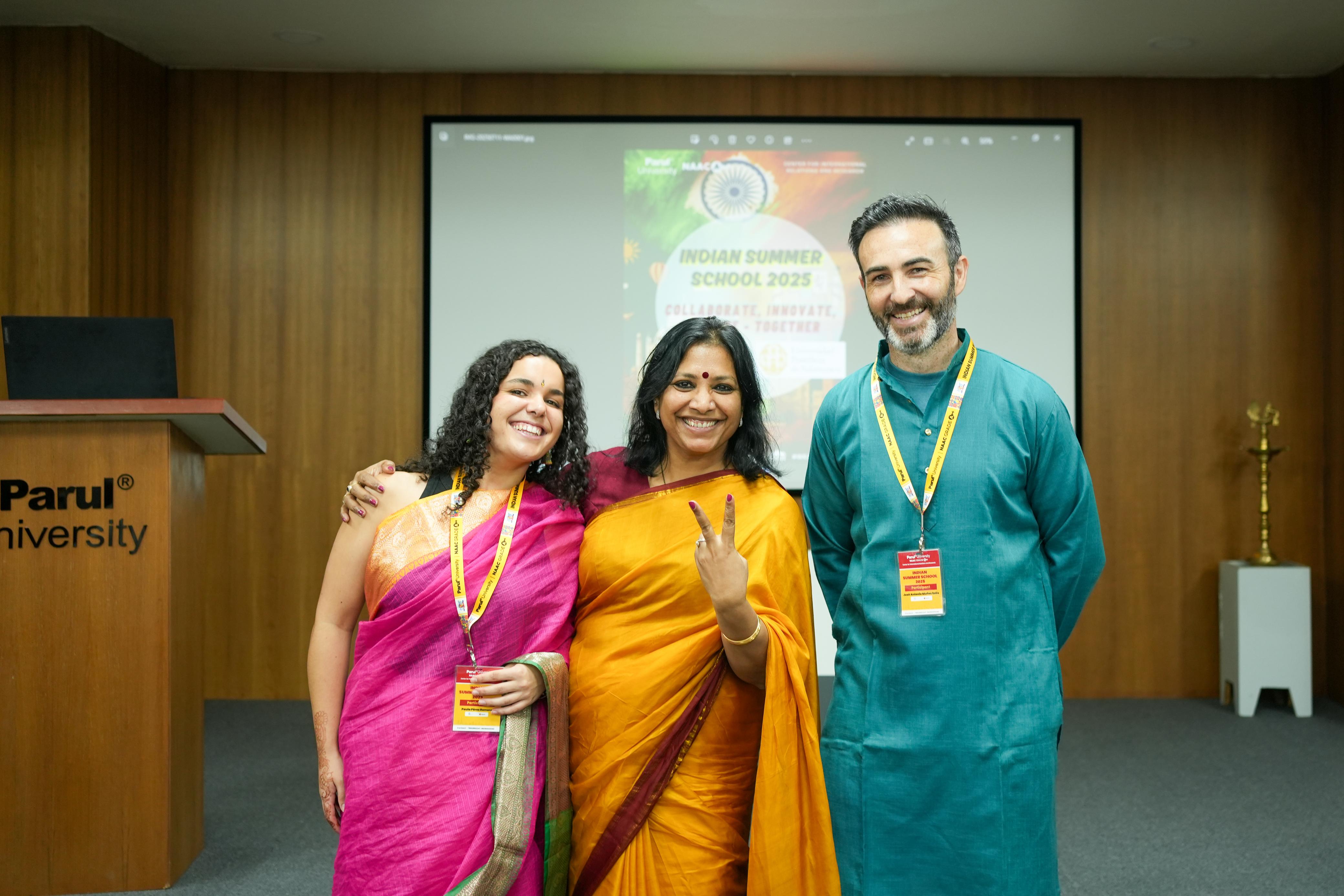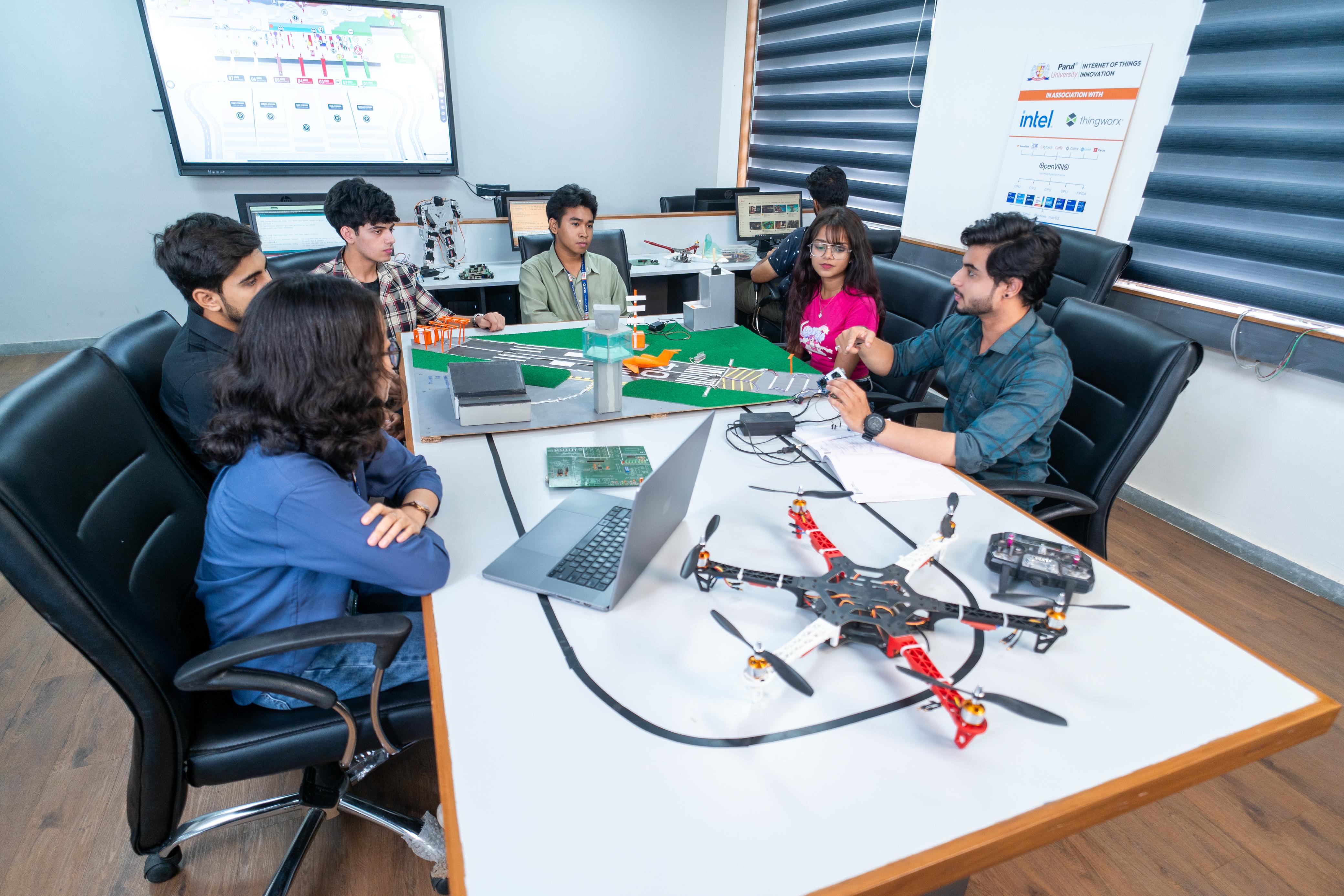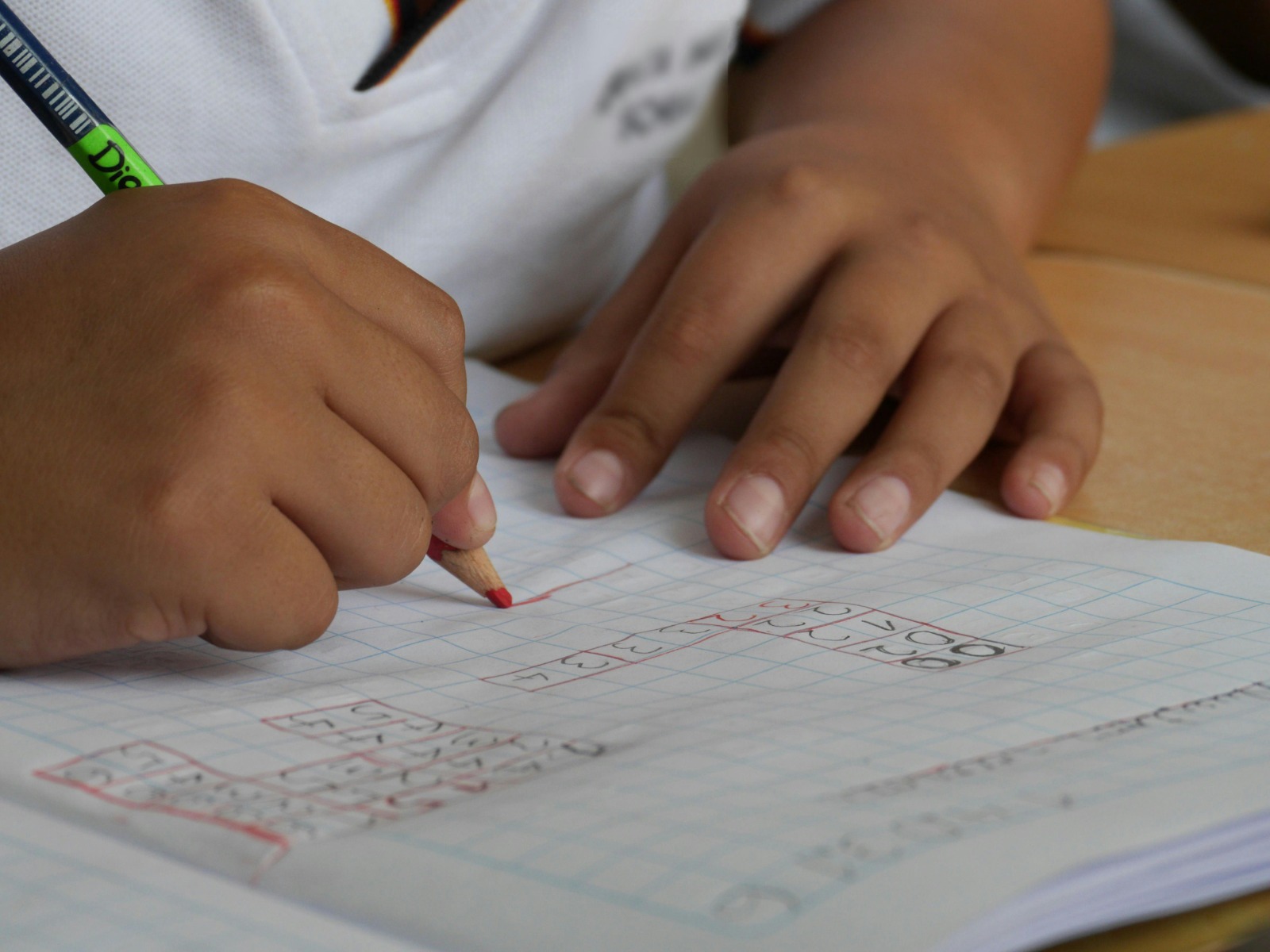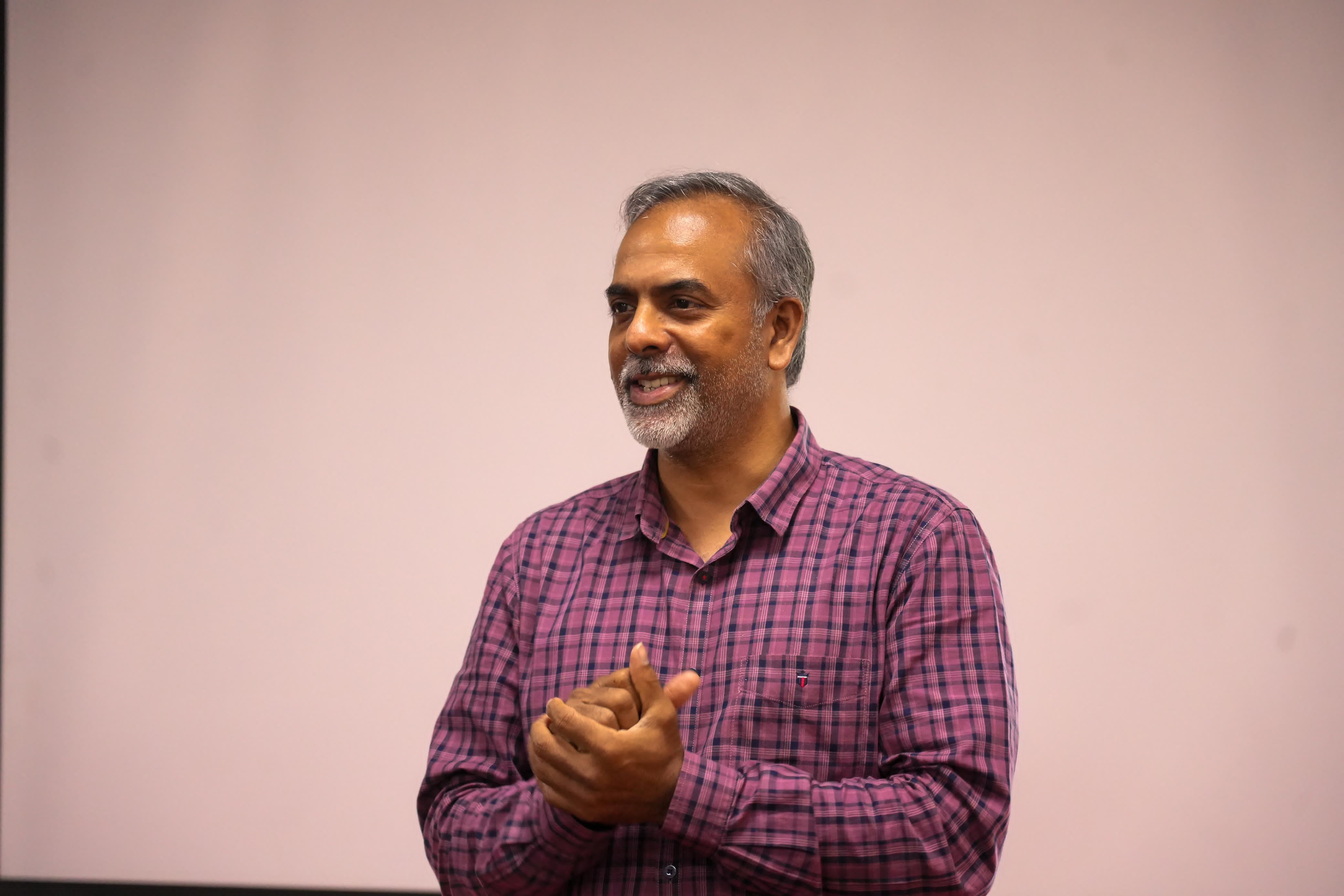Algorithms, stressors, and snap judgments: what does it mean for us? This question took centre stage at Parul University’s recently hosted International Conference on Mindfulness, Behavioural Science, Legal Innovation and Artificial Intelligence (BLAIM 2025), a global confluence of academic voices, scientific inquiry, and philosophical introspection.
Organised by the SCOPE Cell and held in hybrid mode over three electrifying days, BLAIM 2025 was more than a plain conference. Scholars, spiritual thinkers, cognitive scientists, legal reformers, and behavioral researchers from across the globe gathered under one theme: “Mindfulness, Behaviour, Law, and AI: Building Human-Centred Futures.”
From “Who to Blame?” to “Where Do We Begin?”
The essence of the conference was the opening of EKAGRATA - Centre of Mindfulness and Behavioural Studies, as the premise of inner change, structural change, and interdisciplinary cooperation. The answer to the question,’ Whom to blame?’ leads to the name BLAIM. Not to shift responsibility, but to find the source of change, one must start with oneself. Based on Indian Knowledge Systems and in line with NEP, AYUSH, and SDGs 3, 4, and 16, EKAGRATA aims to become one of the catalysts in the re-imagination of human possibility and social systems.
During the introduction of EKAGRATA, Dr. Geetika Madan Patel, Vice President (Quality, Research & Health Sciences), Parul University, highlighted its timeliness in the wake of Imposter Syndrome, FOMO, and Technoference. She also presented the paradigms of 3C’s: Calmness, Clarity, and Concentration, and 3F’s: Focus, Flexibility, and Flow, and emphasized the desire for learners to ‘open the curtains to allow sunlight to touch them.’
“The human mind is what needs studying the most, and that is what we are trying to do.”
– Dr. Geetika Madan Patel
Dr. Vijay P. Bhatkar (Padma Bhushan & Padma Shri), Ex-Chancellor of Nalanda University, the father of the Indian supercomputer, delivered the inaugural address and lauded the conference as one that has the boldness to venture into new intellectual regions. About the advancements, he added that India could become the most prominent teaching professional in the world and requested the participants to take part in conversations that could also shock the presenters themselves.
Director of IIT Mandi, Prof. Laxmidhar Behera, talked about the philosophy of consciousness and the worth of bringing back Indian Knowledge Systems. Reflecting on this, a well-known neurosurgeon, Dr. Iype Cherian, Director of the Institute of Neurosciences, College of Medical Sciences (CMS), Bharatpur, Nepal, conducted a profound session on neuroscience and spirituality. He used the symbols of ancient Indians, chakras, and the Advaitic principle of non-duality, saying, “The greatest trouble in life is that it is not simple.”
Dr. Ramajayam Govindaraji, Assistant Professor at the Indian Knowledge System and Mental Health Applications (IKSMHA) Centre, IIT Madras, connected the concepts of mental health with ancient yogic concepts and provided actionable insights, such as the body as a tool in regulating the mind and inner awareness through Samadhi, Dhyana, and Dharma. His philosophy made wellness not only a result, but a journey with the self.
In her session titled, Vicious Vent, Prof. Beulah Shekhar, Department of Criminology, Karunya Institute of Technologies and Sciences, Coimbatore, Tamil Nadu, shed light on the emotional loop of anger and quoted Gandhi: “The path is the goal.” Prof. Ajay Chaturvedi took a bold turn with his discourse about time, thought, decolonisation, and the ‘Kulhad Economy of India’. Raising questions to the existing beliefs he posed to the audience, “Are you deciding the thought or is the thought deciding you?” and also reminded them, “We are of the land of the spices-this country was known as Devbhumi.”
During a session on institutional change, Dr. Reena Sharma, Founder and Practicing Psychologist, The Mind Practice, Ahmedabad, Gujarat, presented case studies of Indian prisons in which mindfulness was used to transform prison environments into real, measurable change. She dared the audience to reflect on whether we should be mind-full or mindful? She suggested mindfulness as a lifeline, not a luxury, especially by focusing on radical acceptance and the gap between the trigger and the response.
Dr. Mohammad Nami is a neuropsychologist, the Director of BrainHub UAE, and a unifier of cognitive science, education, and emotional well-being. Emotion is the opening to attention, and attention is the opening to learning, he said. In response to the current complexity, he further drew attention to the VUCA model - Vulnerability, Uncertainty, Complexity, and Ambiguity, suggesting an antidote to: Imagination, Inspiration, Integration, and Intuition.
“Teachers are not meant to be educators. They are meant to be cognitive leaders.”
- Dr. Mohammad Nami
Although the sessions were based on intense research and thorough investigation, there seemed to be a bigger trend, where human experience is the centre of policy, pedagogy, and programming. Be it a neuroscientist who mentioned chakras, a legal professional who told the tales of transformation, or a technologist who appealed to ethical AI, the takeaways of the conference were the same: the future should be constructed consciously.
The conference ended with a cultural presentation, yet the most powerful thing it gave was this: the authorization and ethical duty to reconsider how we think, learn, govern, and develop.
Is it possible that mindfulness, law, and AI will create a human-centred future?
As the conversations at BLAIM 2025 unfolded, the answer is a resounding yes, but only when we start with ourselves. The conference demonstrated that the integration of ancient wisdom with current technology, mindful legal reforms with behavioural insights, and spiritual practices with scientific rigor offers a pathway toward a more compassionate worldview.
Still, as we encounter the dividing line between technological progress and human intelligence, one question remains relevant: Will we create AI systems in such a way that they will make humanity even better, or will we leave the definition of the human species to technology? The choice, as BLAIM 2025 reminded us, begins with the consciousness we bring to each decision we make today as an individual.
#Mindfulness #AI #LegalInnovation #BehaviouralScience #HigherEducation #CognitiveLeadership #ParulUniversity #EKAGRATA #BLAIM2025

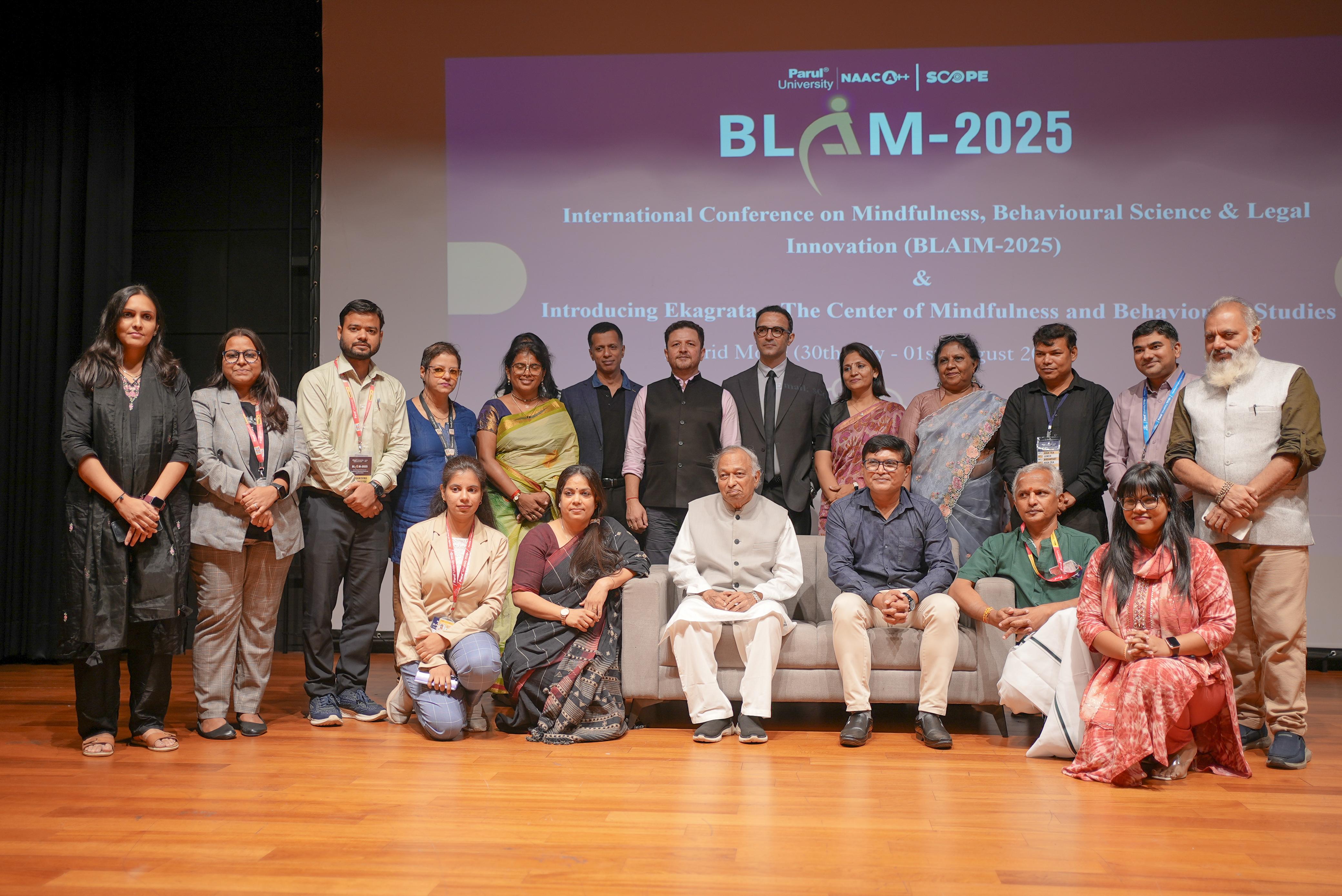
.jpg)
